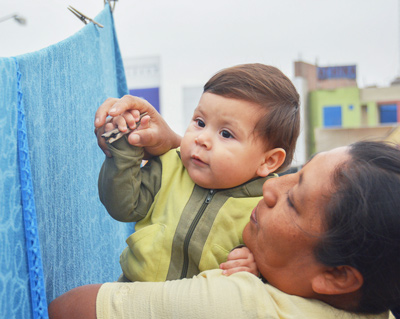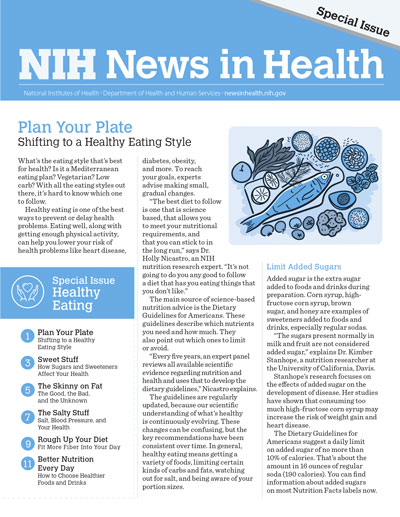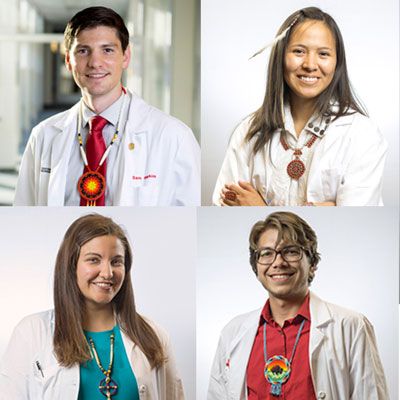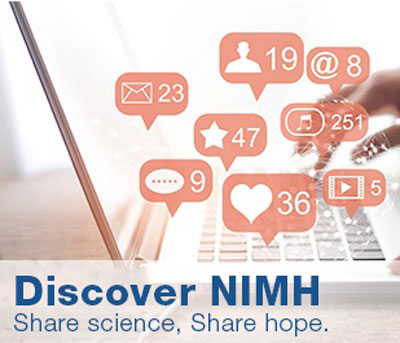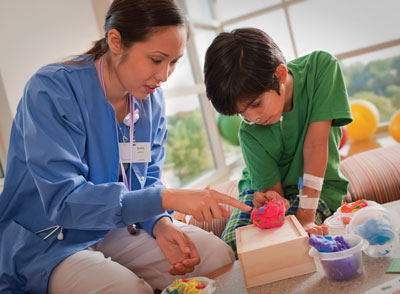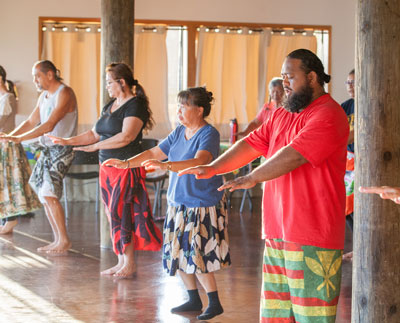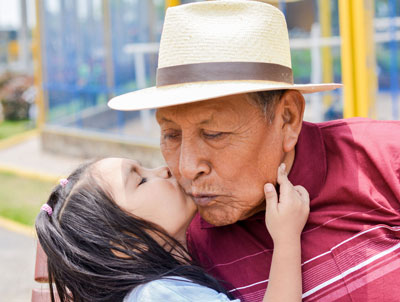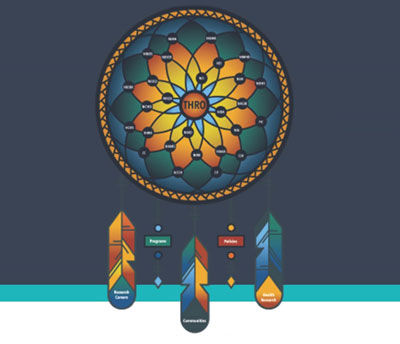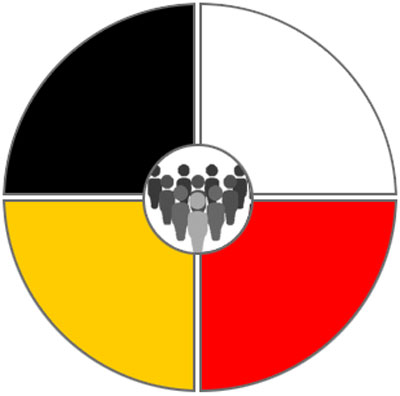November Is National Native American Heritage Month
During National Native American Heritage Month, the National Institutes of Health (NIH) joins in paying tribute to the rich ancestry and traditions of Native Americans by honoring the health of Native communities and striving to advance research and expand the reach of relevant health information.
In this special NIH-wide collective issue of Honoring Health, you will find a sample of the most recent health resources available from many of our Institutes, Centers and Offices that can be used to promote healthier Native communities.
Featured Health Information
Native Americans are among the NIH’s diverse workforce, which includes a wide range of scientists, medical officers, nurses, technicians, program specialists, administrators, communicators, managers and supervisors. Our staff brings a balance of perspectives to bear on every challenge we face. We hope that these profiles of Native Americans at the NIH, including staff that support programs for them, will serve as an inspiration to you and others to serve society by helping to improve human health.
For more information on how we honor the health and heritage of Native Americans, check out the 2019 Native American Heritage Month page from the Office of Equity, Diversity, and Inclusion at the NIH.
NIH News in Health, one of the NIH’s most widely distributed consumer health publications, has created a special issue focused on Healthy Eating that features a collection of popular stories on how to improve your nutrition and eat healthier. You can read it online or download a printable PDF version to easily share with your community.
The National Heart, Lung, and Blood Institute (NHLBI) produced a booklet about the research efforts focused on improving Native American health, including results with public health impact from the Strong Heart Study and other programs. The Strong Heart Study helped identify type 2 diabetes as a major risk factor for heart disease in American Indians, thus informing the Special Diabetes Program for Indians, run by the Indian Health Service (IHS). The study also has developed risk calculators, specifically tailored to American Indians, for estimating a person’s chances of developing diabetes, hypertension and heart disease.
The National Institute of Mental Health (NIMH) has developed Discover NIMH, a new e-newsletter that highlights NIMH tools and resources that organizations can use for community mental health outreach and education, including promotional messaging, graphics, activities, publications and events. The newsletter will go out regularly timed to key health observances and announcements. Help raise awareness about mental disorders and the importance of mental health research by sharing this free education and outreach resource with your community. Sign up here to receive Discover NIMH.
SmokefreeTeen, part of the National Cancer Institute’s (NCI) Smokefree.gov initiative, now includes resources for teens who use e-cigarettes (vapes). The site includes content to help teens learn about how to quit vaping, deal with cravings and cope with common triggers such as anxiety and stress.
Palliative Care: Conversations Matter® from the National Institute of Nursing Research (NINR) offers resources for health care providers and for families whose children are living with serious illnesses. To learn what palliative care is and how it can positively influence a patient’s and family’s experience with illness, download or order free materials such as videos, brochures, fact sheets and a provider toolkit.
News and Events
Convening of Experts Focuses on Native American Women’s Heart Health
Heart disease is a leading cause of death for all American women and has a disparate impact on lifespan and quality of life for Native American women. Working with the IHS and WomenHeart, a nonprofit health advocacy organization, the NHLBI convened Native American health scholars, clinicians, health educators, federal officials and women living with heart disease to discuss challenges and opportunities to improve Native women’s heart health. Read more about the major themes of this conversation captured in a new online feature.
New Grant To Study Alzheimer’s in Urban Native Elders
The National Institute on Aging (NIA) has awarded a grant to fund five community organizations to research Alzheimer’s disease and related dementias in American Indian and Alaska Native (AI/AN) older adults living in urban areas. Over the next five years, the URBAN Native Elders (URBANE): Risk and Protective Factors for Alzheimer’s and Related Dementias study will recruit 1,200 men and women age 55 and older living in cities with large Native populations. The study will explore known Alzheimer’s risk factors—and protective factors—and how they affect disease rates in this population. While most AI/AN older adults live in urban areas, research on these populations has been conducted largely in rural and reservation settings. By studying urban-dwelling Native older adults, researchers will be able to study the distinctive effects that urban environments may have on the prevalence, risk factors and protective factors for Alzheimer’s disease and related dementias in Native older adults.
Guest Lecture Focuses on Mental Health and Substance Use Among Indigenous People
The NIH Tribal Health Research Office (THRO) recently hosted a guest lecture by Melissa Walls, Ph.D. (Bois Forte and Couchiching First Nation Anishinaabe Bands), Director of the Great Lakes Hub for the Johns Hopkins Center for American Indian Health. The lecture focused on trajectories of early life course substance use, mental health challenges and enduring mental health among indigenous people in North America. Watch the lecture here.
First-of-its-Kind Traditional Medicine Summit Hosted in November [PDF - 169KB]
THRO, the National Center for Complementary and Integrative Health, and the Centers for Disease Control and Prevention hosted a Traditional Medicine Summit this month. A first of its kind, the summit identified approaches to respectful collaboration between traditional medicine practitioners and health researchers; explored the relationships between traditional medicine and health care services; and connected younger generations of AI/AN people to traditional medicine, integrative health research and academic research. Information from the open sessions will be available on the THRO website. For more information, please contact Edmund Keane at [email protected].
